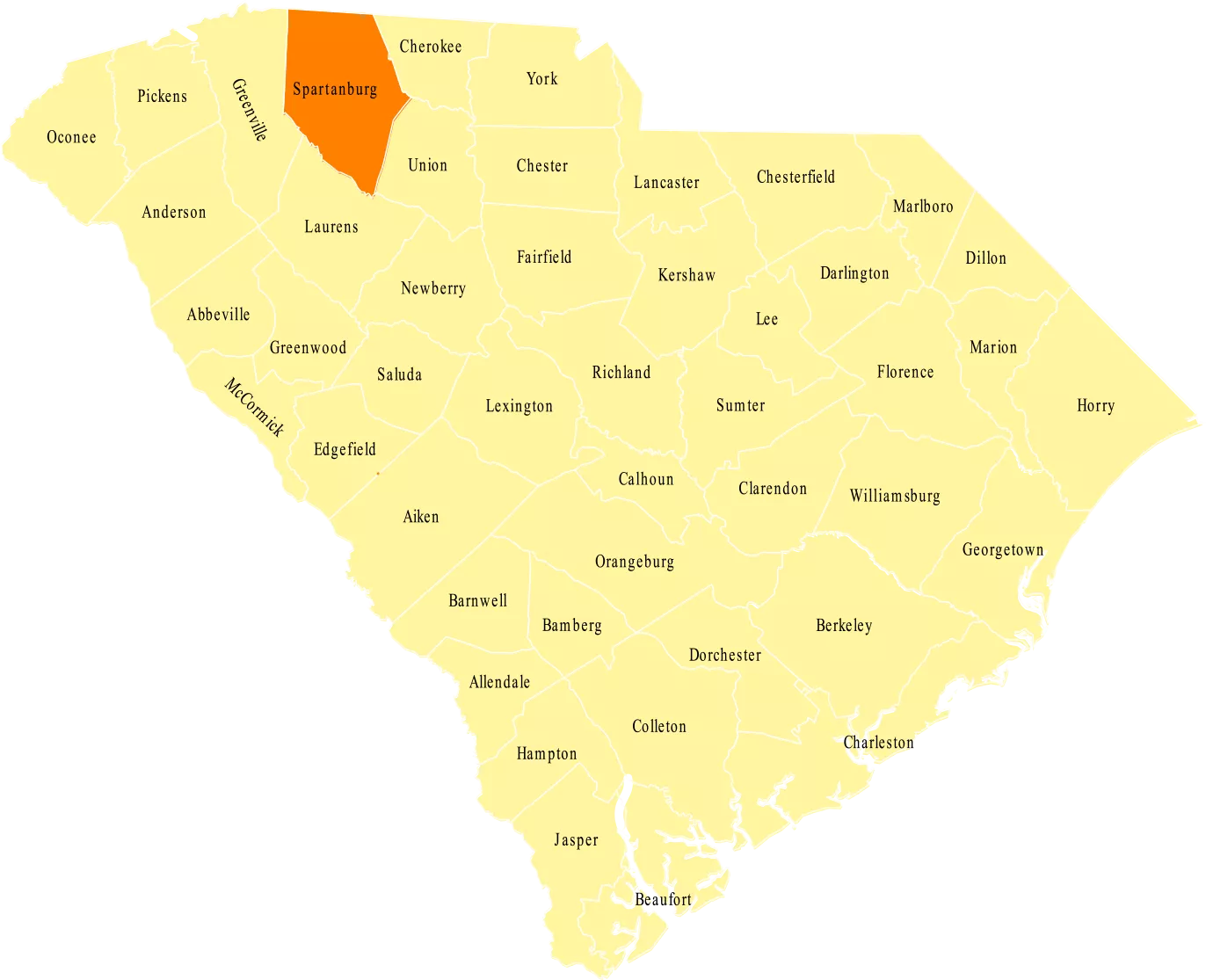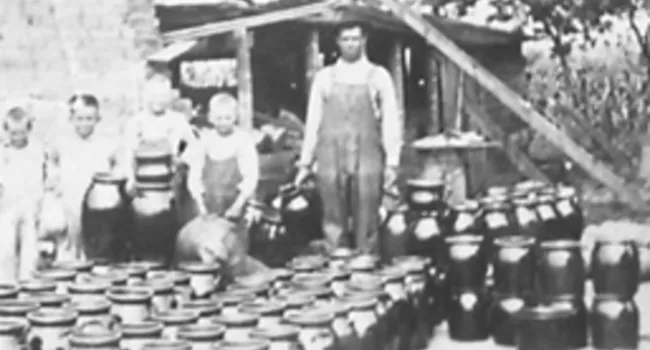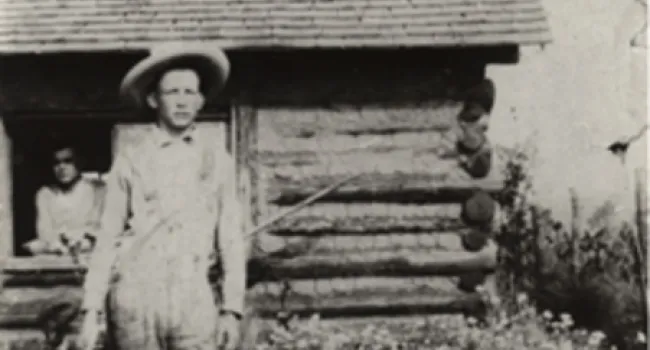
Video
Rudy Mancke (1941-2023) grew up in Spartanburg and for many years hosted SCETV’s nationally renowned series NatureScene, touring fifty states and ten countries to examine and share their natural...
Spartanburg County was founded in 1785 and lies near the Blue Ridge Mountains. Both the county and its seat are named in honor of the Spartan Regiment, a local militia who served the Americans in the Revolutionary War. Notable residents include general William Westmoreland and hymn writer William Walker.
The county was principally settled by Scotch-Irish and other Europeans who moved to the area from Pennsylvania and Virginia in the late 18th century. Historically, the economy relied on small cotton farms, cattle raising, and the Lowcountry tourists that visited the area’s mineral springs. After the Civil War, the region’s economy transitioned to textile manufacturing. Today, Spartanburg County has become an industrial hub. In fact, “the New York Times reports Spartanburg as having the highest per capita international investment in the nation.”
SOURCE: Economic Futures Group. Accessed June 10, 2016.

Video
Rudy Mancke (1941-2023) grew up in Spartanburg and for many years hosted SCETV’s nationally renowned series NatureScene, touring fifty states and ten countries to examine and share their natural...
Video
How did South Carolina beat 250 global locations to land BMW’s biggest factory? Learn how this dynamic move to Spartanburg sparked an economic revolution. In 1992, Spartanburg, South Carolina secured...
Video
The ETV Endowment sponsored a series of tours of three different Southern Campaign battlefields of the American Revolution. With my being a history enthusiast, I was lucky to accompany Steve Folks...
Video
Mechatronics is a multidisciplinary field of engineering that includes a combination of systems engineering, mechanical engineering, electrical engineering, telecommunications engineering, control...
Video
Camp Croft, a WWII Army Infantry Replacement Center located near Spartanburg, SC. Since 2001, this site has served to honor those who worked and trained at Croft from 1940 to 1946 and to memorialize...
Photo
George L. Clayton, father of Oliver Jones "Pete" Clayton (1906-1988) founded Clayton Pottery in the Greenville/Spartanburg area around 1912. Pete was the only one of his father's four sons that became...
Audio
Pete Clayton discusses miscellaneous types of stoneware that he produced
Audio
Pete Clayton tells Cinda Baldwin about the groundhog kiln and the firing process
Audio
Pete Clayton talks about how the whiskey trade helped support the stoneware trade
Audio
Pete Clayton tells Cinda Baldwin about the types of stoneware his father produced